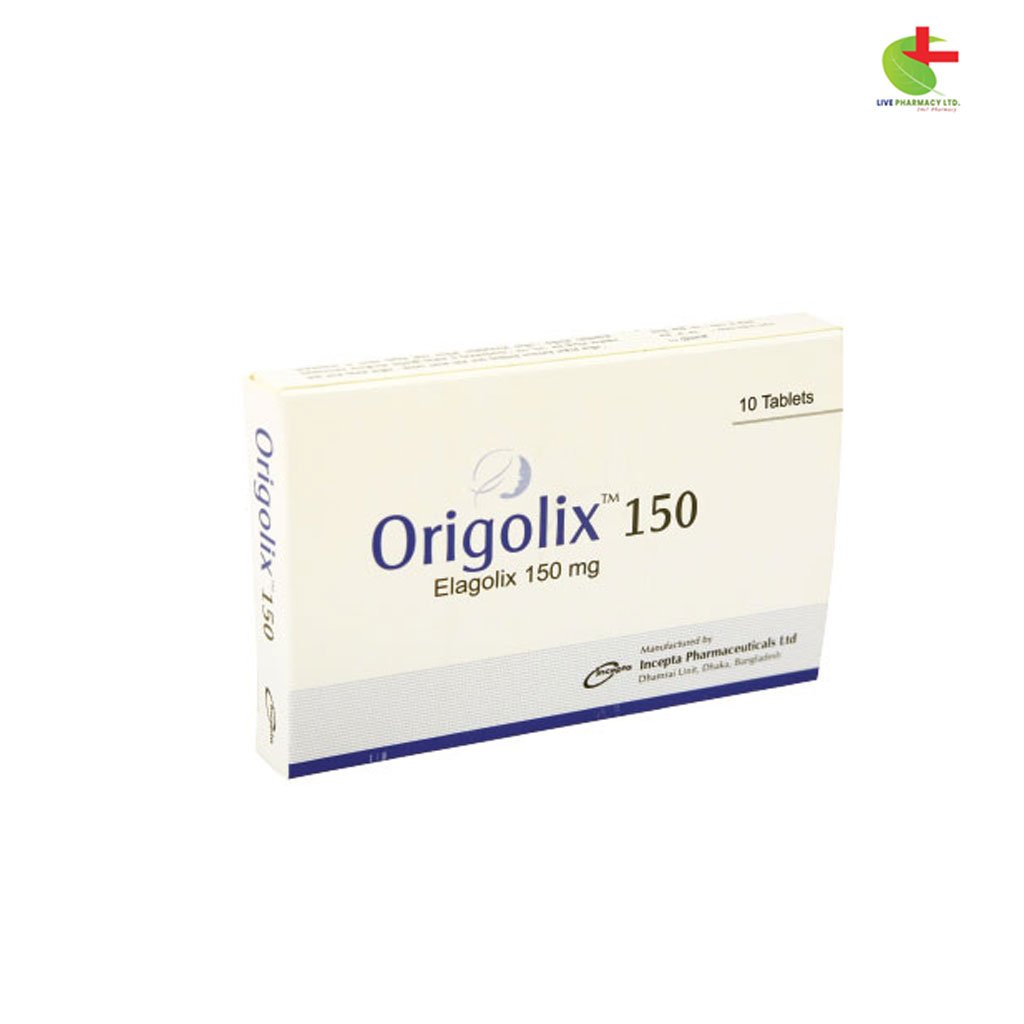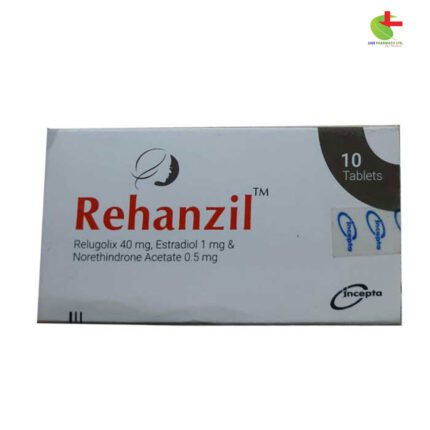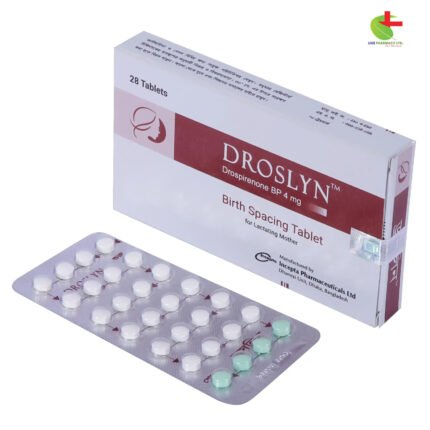Origolix 150
1,800.00৳ Strip(10)
- Origolix is a GnRH receptor antagonist used to manage moderate to severe pain associated with endometriosis.
- It works by inhibiting GnRH signaling, leading to reduced ovarian hormone levels.
- The recommended treatment duration depends on the dosage, with adjustments for hepatic impairment.
- Common side effects include hot flashes, mood changes, and bone loss; not recommended during pregnancy.
 Brand
Brand
|
Incepta Pharmaceuticals Ltd |
|---|---|
 Generics
Generics
|
Elagolix Sodium |
 Type
Type
|
Tablet |
Indications
Origolix is prescribed to manage moderate to severe pain associated with endometriosis.
Always follow the advice of a registered healthcare professional when using this medication.
Pharmacology
Elagolix is a GnRH receptor antagonist that works by binding to GnRH receptors in the pituitary gland, effectively inhibiting GnRH signaling. This action leads to a reduction in luteinizing hormone (LH) and follicle-stimulating hormone (FSH) levels, causing a decrease in ovarian hormones like estradiol and progesterone in the bloodstream.
Dosage & Administration
Before starting treatment with Elagolix, pregnancy must be excluded, and it should be initiated within 7 days of the onset of menstruation.
- Initial Dose of Elagolix 150 mg: Take 150 mg once daily for up to 24 months. For patients with moderate hepatic impairment, the treatment duration should not exceed 6 months.
- Initial Dose of Elagolix 200 mg: Take 200 mg twice daily for up to 6 months if dyspareunia (painful intercourse) is present. Extended use beyond 6 months may lead to a decrease in bone mineral density (BMD).
- In Patients with Moderate to Severe Hepatic Impairment: Elagolix 200 mg is not recommended.
Use in Children and Adolescents: The safety and efficacy of Elagolix in patients under 18 years have not been established.
Always consult with a registered healthcare professional before use.
Drug Interactions
- With Medications: Elagolix may increase the effects of P-gp substrates (e.g., digoxin) and CYP2C19 substrates (e.g., omeprazole—limit to <40 mg daily). It may reduce the efficacy of CYP3A substrates and antagonize oral midazolam and rosuvastatin (consider adjusting doses). Co-administration with CYP3A inducers may reduce Elagolix’s effectiveness. Additionally, Elagolix may interact with estrogen-containing contraceptives, reducing their effectiveness.
- With Food: No significant food interactions have been identified.
Contraindications
Elagolix is contraindicated in pregnancy, as early exposure may increase the risk of pregnancy loss. It is also contraindicated in individuals with known osteoporosis due to the potential for increased bone loss, as well as in those with severe hepatic impairment. Concomitant use with strong OATP1B1 inhibitors (e.g., cyclosporine, gemfibrozil) is also not recommended.
Side Effects
- Common Side Effects: Hot flashes, night sweats, headache, nausea, amenorrhea (absence of menstruation), joint pain (arthralgia), mood changes, and bone density loss.
- Rare Side Effects: Insomnia, anxiety, and elevated liver enzymes (hepatic transaminases).
Pregnancy & Lactation
Elagolix should not be used during pregnancy, as it may increase the risk of early pregnancy loss. If pregnancy occurs during treatment, Elagolix must be discontinued. There is no available information regarding the presence of Elagolix in breast milk, its effects on breastfeeding infants, or its impact on milk production.
Precautions & Warnings
- Bone Loss: Prolonged use may lead to decreased bone mineral density (BMD), which may not fully reverse after discontinuation. Women at higher risk for bone loss should have their BMD assessed.
- Altered Pregnancy Detection: Elagolix may affect menstrual bleeding patterns, making it harder to recognize pregnancy. If pregnancy is suspected, perform a test. Discontinue Elagolix if pregnancy is confirmed.
- Mood and Mental Health: Patients should be monitored for symptoms of depression, suicidal thoughts, or any mood changes. Seek medical help if such symptoms occur.
- Liver Health: Elagolix may cause dose-dependent increases in liver enzymes (ALT). Patients should be informed about the signs of liver injury and regularly monitored for hepatic function.
- Interaction with Estrogen Contraceptives: Due to the reduced efficacy of hormonal contraceptives during treatment, use non-hormonal birth control during treatment with Elagolix and for at least one week after discontinuation.
Use in Special Populations
- No dose adjustment is required for women with renal impairment or end-stage renal disease, including those on dialysis.
- For women with mild hepatic impairment, no dosage modification is necessary.
- The safety and effectiveness of Elagolix in individuals under 18 years have not been established.
Overdose Effects
In case of overdose, patients should be monitored for adverse reactions. Symptomatic treatment should be initiated as needed.
Therapeutic Class
Gonadotropin-releasing hormone (GnRH) antagonist.
Storage Conditions
Store in a cool, dry place, away from light and moisture. Keep out of reach of children.













Reviews
There are no reviews yet.